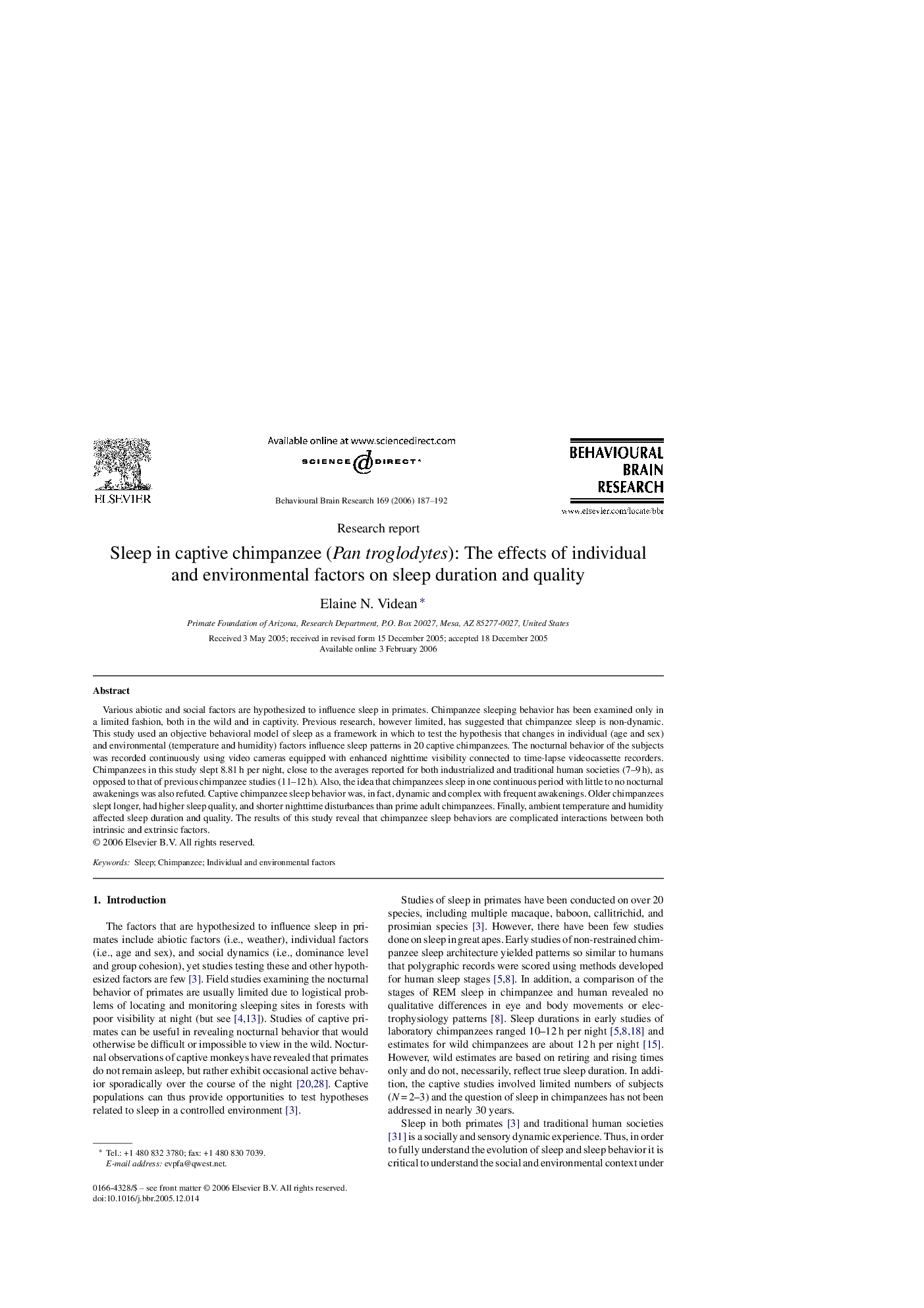| Article ID | Journal | Published Year | Pages | File Type |
|---|---|---|---|---|
| 4316187 | Behavioural Brain Research | 2006 | 6 Pages |
Various abiotic and social factors are hypothesized to influence sleep in primates. Chimpanzee sleeping behavior has been examined only in a limited fashion, both in the wild and in captivity. Previous research, however limited, has suggested that chimpanzee sleep is non-dynamic. This study used an objective behavioral model of sleep as a framework in which to test the hypothesis that changes in individual (age and sex) and environmental (temperature and humidity) factors influence sleep patterns in 20 captive chimpanzees. The nocturnal behavior of the subjects was recorded continuously using video cameras equipped with enhanced nighttime visibility connected to time-lapse videocassette recorders. Chimpanzees in this study slept 8.81 h per night, close to the averages reported for both industrialized and traditional human societies (7–9 h), as opposed to that of previous chimpanzee studies (11–12 h). Also, the idea that chimpanzees sleep in one continuous period with little to no nocturnal awakenings was also refuted. Captive chimpanzee sleep behavior was, in fact, dynamic and complex with frequent awakenings. Older chimpanzees slept longer, had higher sleep quality, and shorter nighttime disturbances than prime adult chimpanzees. Finally, ambient temperature and humidity affected sleep duration and quality. The results of this study reveal that chimpanzee sleep behaviors are complicated interactions between both intrinsic and extrinsic factors.
